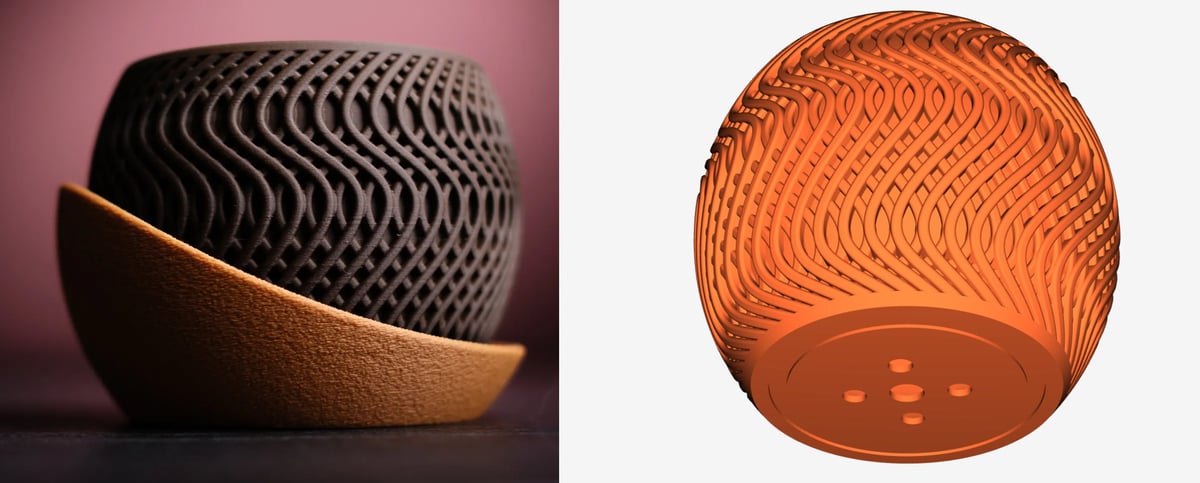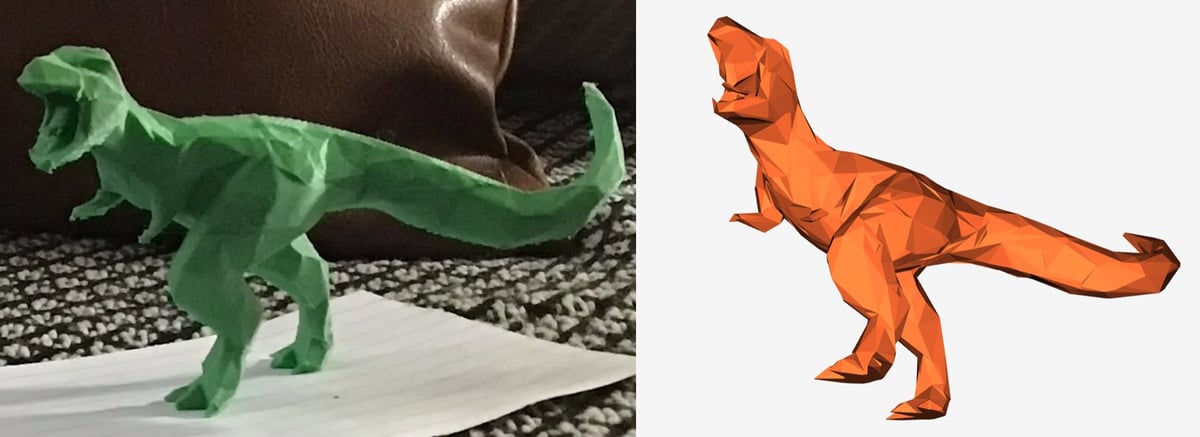Out of the dozens of companies specializing in 3D printing, how do you know which is right for your project? We at All3DP have zeroed in on three of the biggest providers of 3D printing and rapid prototyping that you may have heard of, Craftcloud, Xometry, and Protolabs, to see how they compare.
Although they have a lot in common, there are differences. We detail what services you can find at each one, which technologies and materials, plus we put them to the test to see which one has the best price and delivery times for three sample projects.
Whether you are a startup looking to prototype a few items or a manufacturer requiring high-volume precision printing, here’s all you’ll need to know about Xometry, Protolabs, and Craftcloud.
Company Comparison
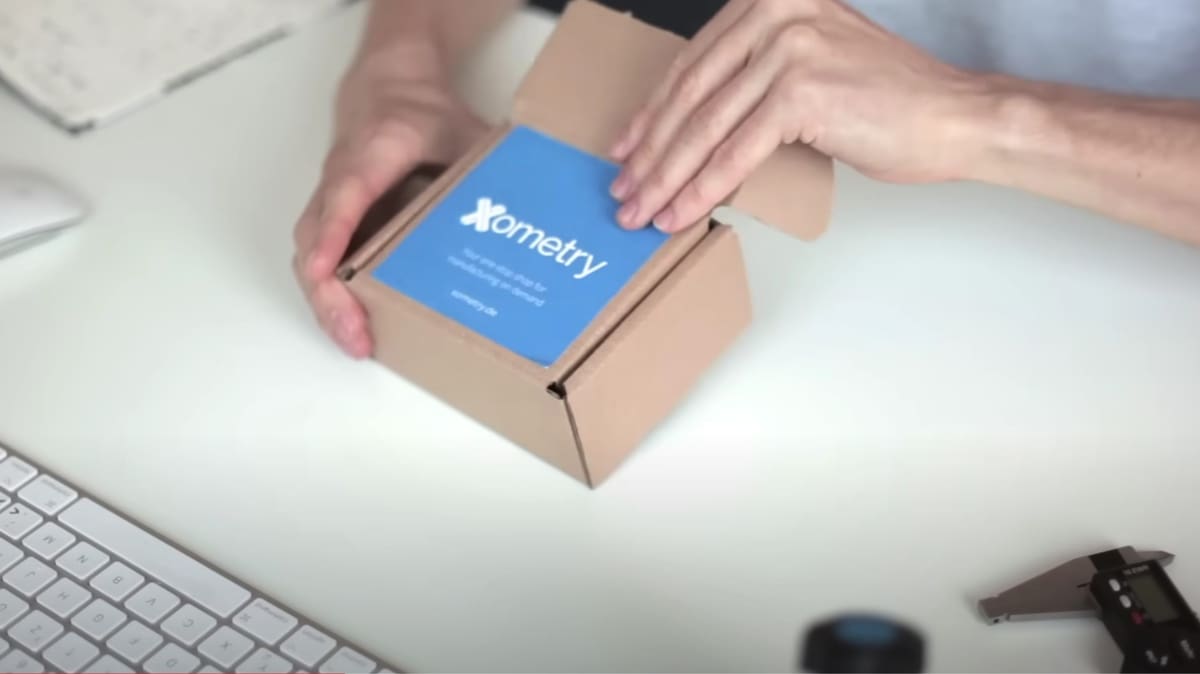
Both Xometry and Protolabs are US-based with offices overseas, while Craftcloud is based in Munich, Germany. All three are key players in the global 3D printing and manufacturing industry, serving both high-profile and everyday customers.
From our experience, neither Xometry nor Protolabs will offer the cheapest price in the industry for single orders or basic prototypes, because they focus on delivering a wide range of technologies and materials for customers that are looking for low-volume production or specialty parts in engineering-grade materials or metal. Their strength is their ability to serve a very wide range of customers and various industries.
Craftcloud on the other hand also caters to a wide range of customers but will generally have the lowest prices for single parts since it includes 3D printing hobbyists in its target audience.
When comparing how each company describes itself in its own marketing, we came up with this chart:
Xometry
- Established: 2013
- Headquarters: Bethesda, Md.
Xometry is a contract manufacturing platform that connects businesses with over 10,000 other service providers to produce their prototypes and production parts. Xometry does maintain some in-house capabilities, but generally partners with its network of manufacturers, which includes machine shops, 3D printing services, injection molding facilities, and sheet metal fabricators. This distributed model allows Xometry to provide flexibility, access to a wide range of manufacturing capabilities, and scalability to meet customer demands.
It calls itself an “AI-enabled marketplace for on-demand manufacturing.” Taken as a whole, its manufacturers can deliver more than 70 materials across 20 processing types.
Xometry is an industry giant serving customers such as BMW, NASA, and General Electric, with more than $2 billion in market cap. It is a publicly listed company on NASDAQ.
Protolabs/Protolabs Network
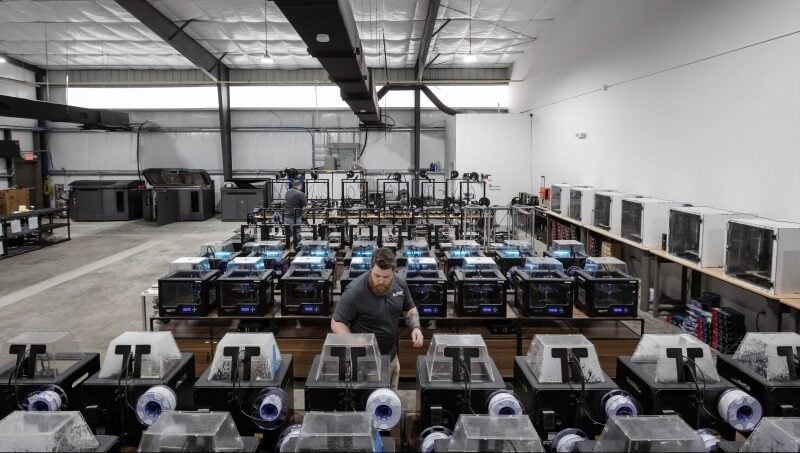
- Established: 1999
- Headquarters: Maple Plain, Minn.
Protolabs was founded as an injection molding service that rapidly expanded technologies to include 3D printing. It once did all of its manufacturing in its own facilities but expanded to a network of partners, like Xometry, in 2021 when it acquired the 3D printing service Hubs, which had a wide network. It has since expanded to rely even more on network partners and scale down its in-house manufacturing.
You may find Protolabs still associated with the name “Hubs” or referred to as “Protolabs Network”. Currently, there is Protolabs, which focuses on on-demand manufacturing, and Protolabs Network, which offers more options for prototyping in addition to manufacturing. These two arms of the same company run separate quoting systems with slightly different focuses, different pricing structures, and various lead times depending on the technology and materials you’re looking for.
Protolab Product Director Ryan Kees told All3DP that one of the differences between Protolabs and Protolabs Network currently is that “Protolabs Network is available for customers who can operate on a longer lead time or in search of capabilities not currently offered at our own factories, resulting in many cost benefits.”
For this article, we’re referring to Protolabs and Protolabs Network together as just Protolabs in most cases.
Protolabs offers a network of more than 250 global manufacturing partners that work directly with customers for the entire life cycle of the project, from conception and prototyping to high-volume production. The company that produces the part is not identified during the quoting process.
Protolabs is also a publicly traded company on the NY Stock Exchange with just under a million in market cap.
Craftcloud
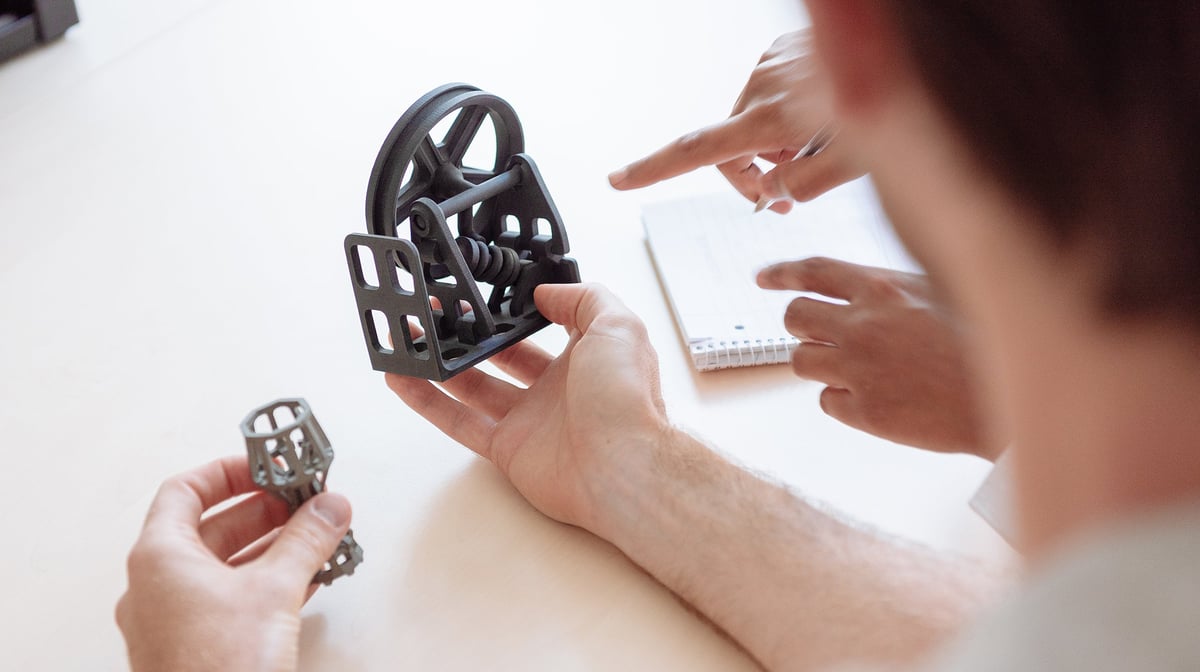
- Established: 2016
- Headquarters: Munich, Germany
Craftcloud is an online 3D printing service, designed to connect customers worldwide with professional 3D printing providers. It offers a convenient platform for users to upload 3D models, compare pricing and materials, and choose a service provider for their specific printing needs.
Craftcloud partners with a wide range of vetted 3D printing service providers worldwide in addition to CNC machine shops, casting and molding facilities, and sheet metal fabricators. Rather than just funneling customer project to its manufacturing partners, Craftcloud is the customer support center and touchpoint throughout the process. This is a plus for companies that want a central hub for all of their 3D printing projects even if they are produced by various manufacturers worldwide.
Multiple (nearly 200) manufacturing partners ensure users can access competitive pricing and a variety of manufacturing options and materials to pick from. Providers are industrial-scale 3D printing companies and specialized services, and each partner is identified alongside its customer ratings.
Technology Comparison
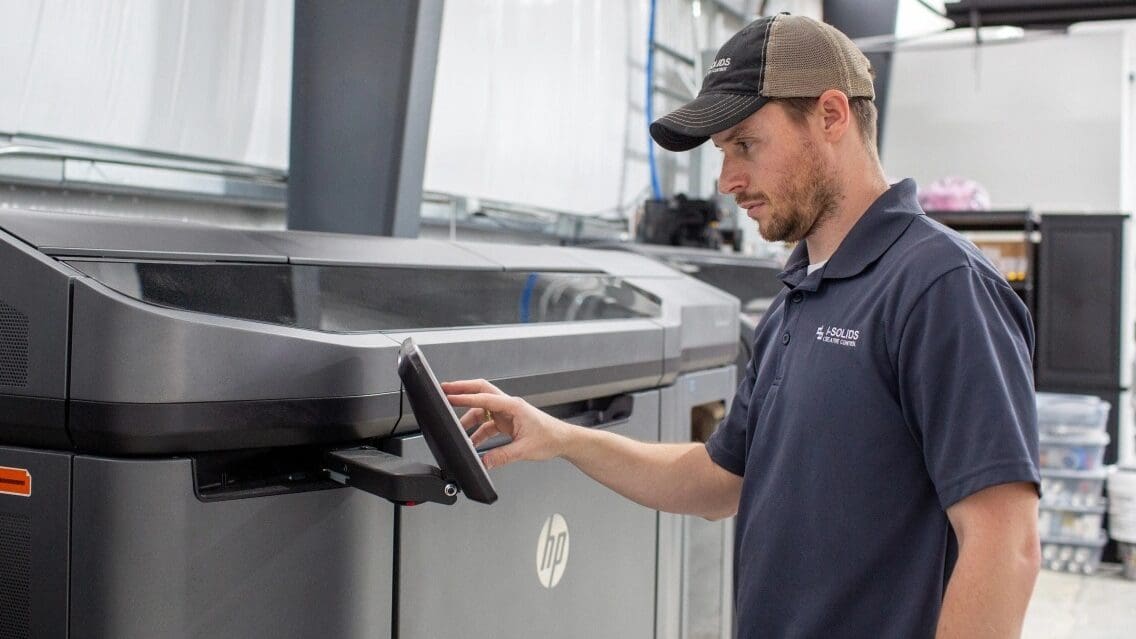
Xometry, Protolabs, and Craftcloud are among the services with the largest menu of 3D printing technology in the industry which can be attributed to their large networks of partners. They have similar capabilities when it comes to the technologies they offer. The main difference here is that Craftcloud and Xometry offer metal binder jet printing, whereas Protolabs do not at the time of this publication. Craftcloud is the only one of the three that offers metal 3D printing with metal filament and Markforge’s metal extrusion technology, which is the most economical way to get solid metal parts.
None of the three companies offer any type of direct energy deposition (DED), any type of large-format robotic arm 3D printing, or construction 3D printing at their site. Craftcloud followed-up and said robotic arm 3D printing is available from a few of their partners, but you’d need to contact them for a manual quote.
It’s worth noting that Protolabs only offers certain processes, such as MJF, through Protolabs Network so it pays to check both online quoting systems for the best offer. Perhaps they’ll combine these platforms in the future.
Craftcloud is the platform that gets the most specific with the technologies. For example, say you don’t just want something 3D printed in clear resin but you specifically want it printed using an LCD resin 3D printer as opposed to a DLP or SLA resin 3D printer, Craftcloud is the only platform that gets this granular.
3D Printing Processes
There’s no sure way to tell which brands of printers each company uses without calling or emailing and specifically asking, except where it’s obvious like MJF is only made on HP printers and PolyJet is exclusive to Stratasys printers. Protolabs says it has 3D Systems resin printers in their facility but if you select a provider via Protolabs Networks, you may not know exactly how your resin parts are being made.
However, the only reason knowing the printer brand would be important is if you’re taking the printer for a practical spin before potentially buying one, or if you want a sense of assurance that your part will come out exactly the same no matter if it’s produced on your own printer or at a service with the same brand of printer. Otherwise, the brand isn’t a significant differentiator between the companies. All use professional-grade 3D printers.
Other Manufacturing Processes Offered
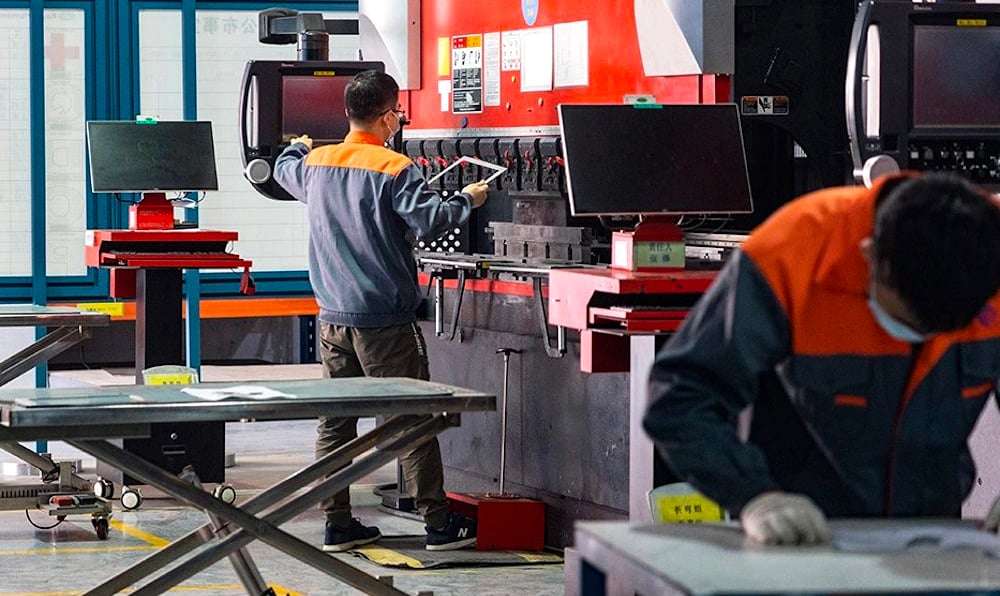
In addition to 3D printing, both companies offer a wide range of other manufacturing technologies. This can be handy in instances where it may actually be cheaper or faster to machine your part. Or perhaps you want to get an quote on multiple processes to compare. You can obtain an instant quote from Xometry and Protolabs for all of the processes listed below.
Although all three companies offer CNC machining, they differ in the type of CNC machining offered. The same is true of their injection molding options.
Materials Comparison

There are hundreds of potential plastics, metals, ceramics and other materials to choose at these three companies. Plus, they are constantly adding new partners to their networks with new materials. So even though a material may not be listed, such as copper, which we only found at Craftcloud, it may be available, but just not listed in their quoting system, so give them a call before you rule them out.
Craftcloud, overall, offers the most variety of materials. It’s the only one of the three offering carbon fiber reinforced filament for FDM and metal filament for FDM. Craftcloud also offers precious metals, but these are not 3D printed rather cast from 3D printed molds. For example, if you upload your file of a ring and order it in gold, a model of the ring 3D printed then used to create a cast mold just like in traditional jewelry making.
There’s also more color variety at Craftcloud. For example, it offers 129 colors of PLA, whereas Xometry and Protolabs offer less than 10. You’ll also find the bone-like LithaBone material for medical models plus an array of recycled materials not available at Xometry or Protolabs.
Below are 20 major materials used in 3D printing.
Filament
Resins
Polymer Powder (for MJF or SLS)
Metal Powders
Post-Processing and Finishes

There’s more to getting your parts made at a 3D printing service than the printing. In fact, many customers with 3D printers in-house opt to outsource to a service when they need a particular finish, like dying, electroplating, or polishing. Once you’ve selected your process and material, you can opt to choose from dozens of post-processing options and finishes for your 3D printed parts.
Craftcloud, Xometry, and Protolabs share many of the most popular post-processing options, such as polishing, sanding, and vapor smoothing. However, Protolabs offers more in the way of specialty finishing with options such as cerakote ceramic coatings, decaling, texture finishes, and soft-touch paint that give your projects a creative edge.
All three companies offer painting, but Protolabs takes it a step further and advertises that they will match any requested Pantone number. However, all three companies offer a “custom finishing” option, where you can describe the finish you’re looking for and an engineer will reach out with a manual quote.
Instant Quoting & Platform Use
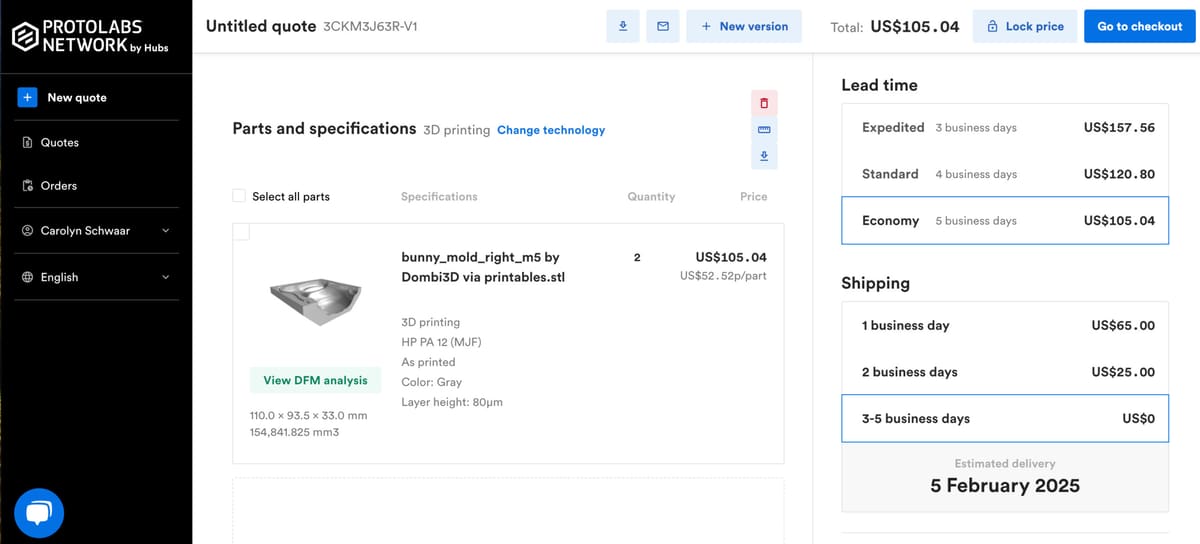
Xometry, Protolabs, and Craftcloud are designed to be user-friendly, with both offering simple, easily navigable interfaces with a few minor differences. Craftcloud is the only one where you don’t have to create an account to get an instant quote.
When uploading your file, Xometry takes a wide variety of file formats, but Craftcloud wins in this category by accepting more than 30 file types. It’s important to note that Protolabs does not accept 3MF files.
Xometry and Protolabs analyze your digital file instantly to ensure that it’s printable. Craftcloud partners analyze the file then reject the job if the file won’t do. This can add time to the process.
Xometry
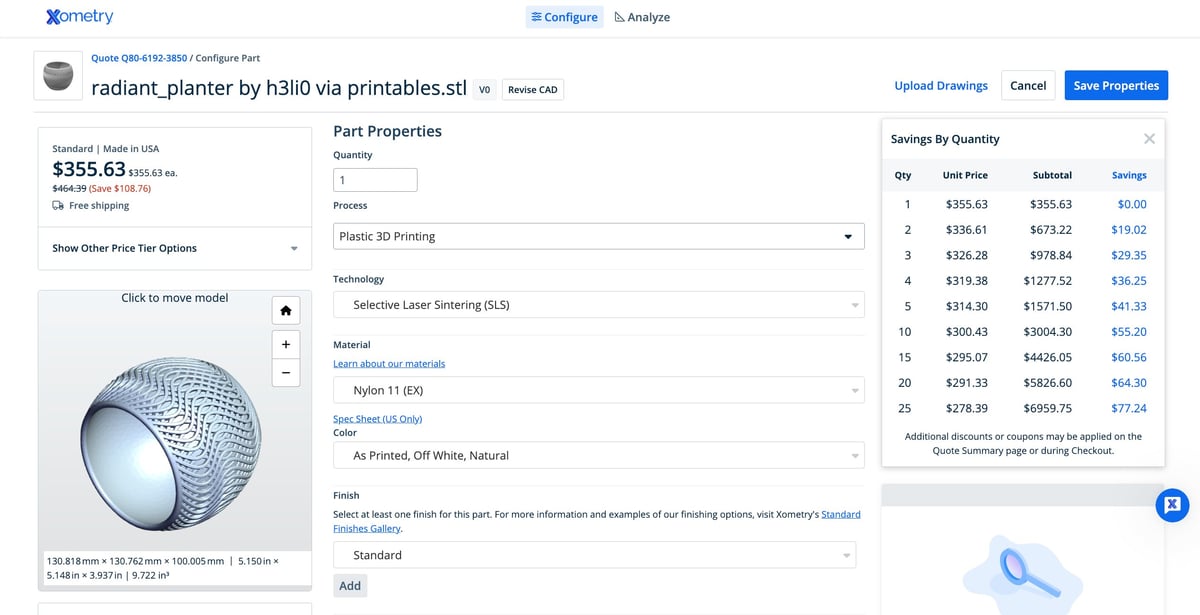
Xometry also makes getting an instant quote easy, placing the upload button directly on the home screen, with the ability to toggle to low volume/high volume production. You can drag and drop or upload your files right away.
After the part is uploaded, a quote number is generated within a personalized dashboard with a number of important options including “Lead Time Options” and “Add Certificate.”
Not all parts, materials, or technologies qualify for an instant quote. The platform will alert you if your project requires a manual quote. You should receive a manual quote in a day or so. If you want a large quantity and custom finish or your project will be over a certain dollar amount, you will most likely need to wait for a manual quote via email.
Xometry, like Protolabs, offers a number of certificates, making it easier for customers to certify their products without having to reach out to an account manager or sales representative for different quality inquiries. Some of the featured certifications for which Xometry is registered are International Traffic in Arms Regulations (ITAR), Defense Federal Acquisition Regulation Supplement (DFARS) Compliant material certification, and Standard Material Certification.
When you first upload your part, the material and technology are auto-populated with Xometry’s suggestions. You can click to change these to any option you choose.
Navigating through their materials and other information requires more clicks to get the information you need, although they do have a vast array of technical guides and other helpful materials.
Xometry also has different site extensions for different continents and regions, should you live in or want to order a part from a particular area. The site versions where customers can order from include the US, UK, Europe, Turkey, and Asia.
Protolabs
Starting an instant quote with Protolabs is easy; simply create an account, click on the blue “Get Instant Quote” button on the homepage and you’ll be directed to upload your files. However, for certain technologies such as FDM, you will be directed to Protolabs Network at hubs.com, making the process slightly disjointed at times.
After the file is successfully uploaded, a quote is automatically generated with a page containing shipping, lead times, and quality documentation options, which you can also save and come back to later on.
Various documentation options may appear depending on the chosen technology. For your part, you may want a Conflict Minerals Declaration or a REACH Compliance Declaration. For other quality documentation or certificates, Protolabs Network gives you the option to connect with their account manager to provide the best option moving forward. This is important as some technologies chosen would not show quality documentation options, such as for 3D printing.
In terms of navigation, Protolabs organizes its information with clear drop-down menus and straightforward categorization, making it easy to search and find information quickly.
Although Protolabs and Protolabs Network fall under the same service, they have separate websites with separate online quoting systems that will result in different prices for the same order. We found that for parts ordered in bulk, Protolabs Network is the cheaper option with longer lead times overall.
Craftcloud
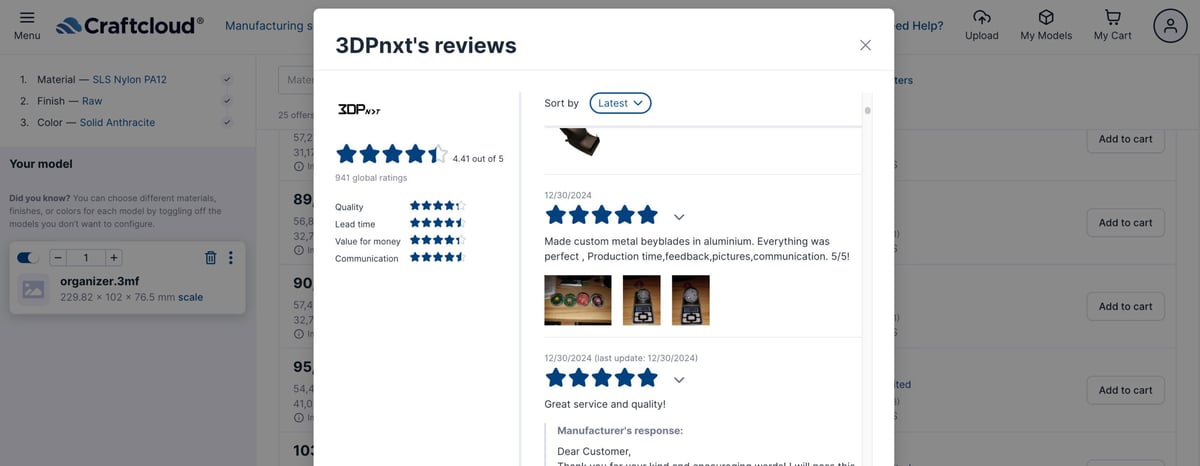
Craftcloud offers an intuitive and very fast quote for all orders. There wasn’t a project we uploaded where we were refused an instant quote or pushed off to a manual quote and had to wait for an email response, which was a definite plus when shopping around. Like the other two services, Craftcloud keeps your uploaded models in a library (when you have an account) so you can easily repeat orders.
Craftcloud is the only one of the three platforms here that offers you several manufacturing partners to pick from. For every project, you’ll get a company that can do it the fastest, one that can do it the cheapest, and one with a good combination of both. If you don’t like any of those three you can scroll down to see all the offers.
Xometry and Protolabs both simply give you one option from their network selected from their algorithm.
Another plus with listing all the manufacturing partners is that you can see the customer reviews for each of them. Many partners have hundreds of customer reviews and many customers left details of their experience and uploaded photos of the results.
Craftcloud also offers certifications for parts but it’s on a partner-by-partner basis, making it a bit inconvenient.
Put to the Test
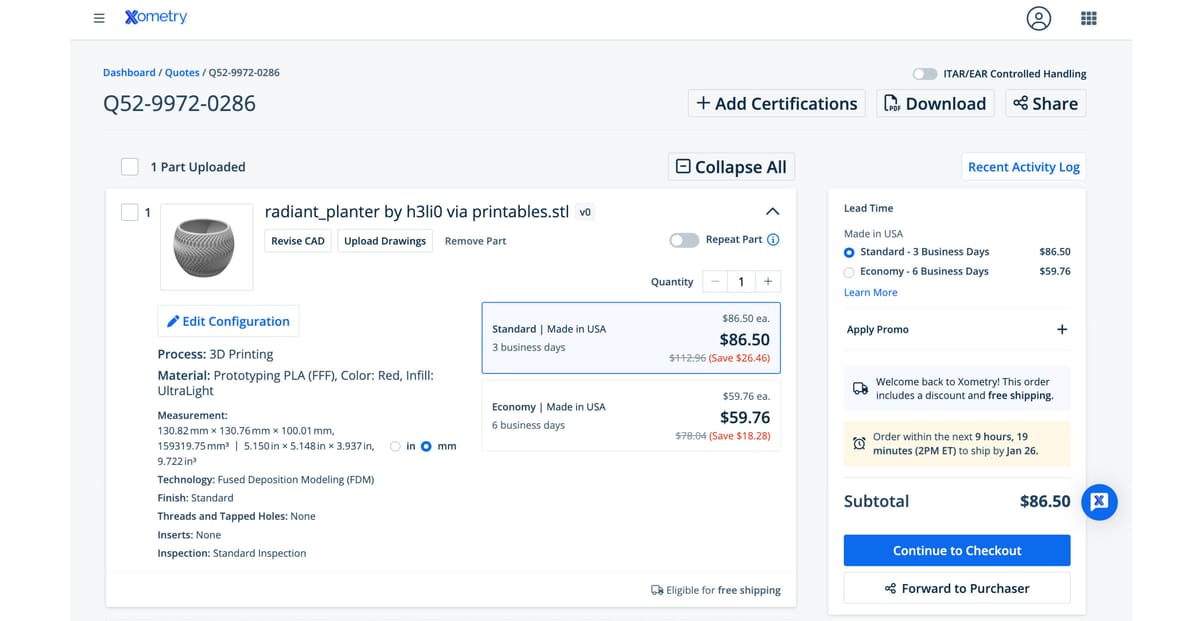
We at All3DP gathered quotes from each company for three 3D printing projects comparing the offers for price and delivery time across three different printing methods. We did not receive actual parts — that would have been wasteful — rather, we put the ordering process and price quoting to the test.
It’s worth noting that although we used the default “standard” delivery option here, all companies offer expedited shipping options. We did not select any post-processing or finishing options for any of the objects.
We found that, despite being networks that connect you with a manufacturing partner, only Craftcloud lets you select the company that will produce your parts. Xometry, does, however, enable customers to select either made in the USA or made internationally.
Our Part Projects
The parts we selected for a quote are stand-ins for typical spare parts, prototypes, and low-volume display items. As we already mentioned we didn’t receive all of these parts printed, instead we tested the ordering process and got quotes, which revealed a lot about what it’s like to work with these companies.
Small Durable Part
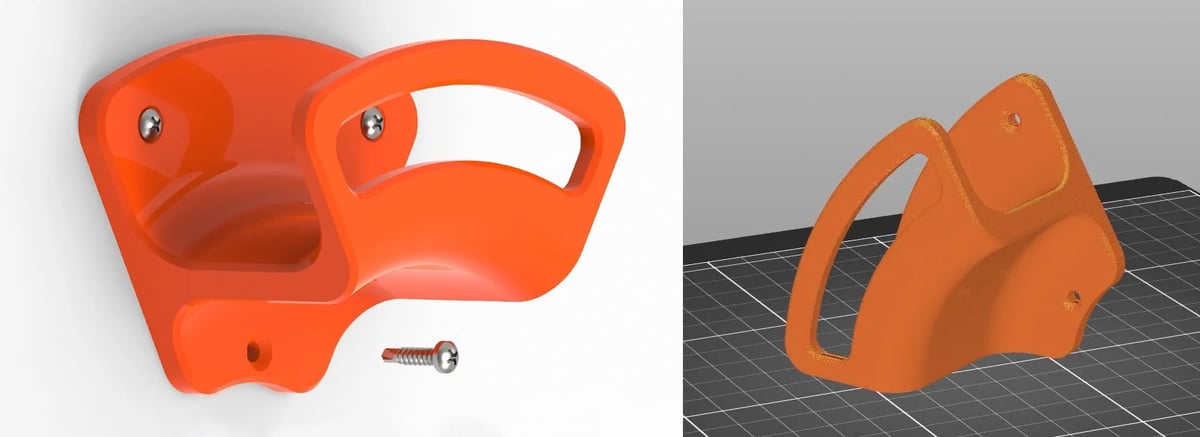
Small Durable Part
First, we uploaded an STL for a 3D printed extension cord holder, a staple in any office or home, but more importantly, it’s a representative size of any type of spare part or product typically printed in nylon using Multi Jet Fusion.
For five parts printed in nylon PA12, Xometry and Protolabs were tied for delivery time but Craftcloud had the lowest price if you’re willing to wait an extra week for delivery.
- Part: Extension Cord Holder (model available free at Printables)
- Quantity: 5
- Material: Nylon PA12
- Technology: MJF
Complex Prototype
Craftcloud was half the price of the other two. This points to the fact that both companies thrive on volume and high-price orders, while single prototypes are just not a profitable offering, so they make them rather pricey.
Protolabs Network has a minimum order of $90 so you will be charged to reach the order minimum, which was the case with both the dinosaur (below) and the planter.
- Part: Planter (model available free at Printables)
- Quantity: 1
- Material: PLA, brown
- Technology: FDM
Low-Volume Display Model
- Part: Dinosaur Model (model available free at Printables)
- Quantity: 5
- Material: Clear Resin
- Technology: SLA
Customer Service & Final Thoughts
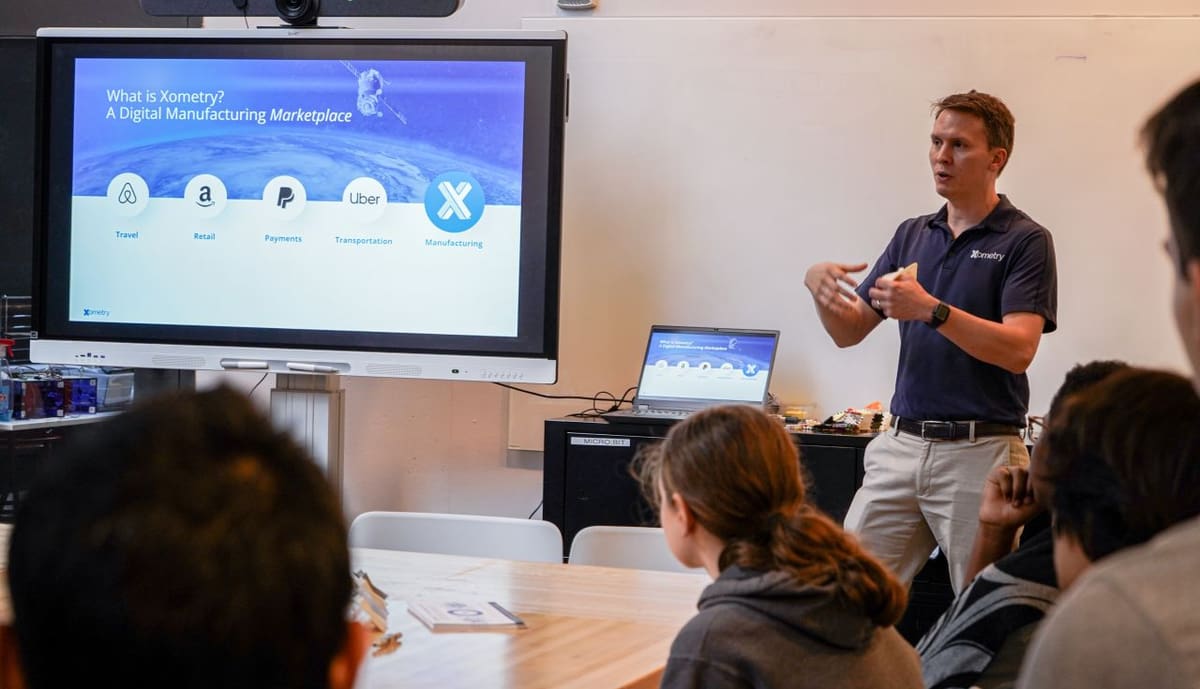
Xometry, Protolabs, and Craftcloud have customer support systems that are both fast and easy to access, whether through online help centers, support channels, and direct communications with their staff. All three companies responded to questions and answered manual quote requests within a few hours to one day.
All three sites also offer extensive resources. Craftcloud has a Knowledge Base of articles on how to pick the right materials and technologies. Protolabs Network’s help center provides detailed information, guides, case studies, videos, and FAQs for common issues and platform materials. Xometry’s knowledge hub covers various aspects of the production process, along with technical guides, articles, tools, standards, certifications, and plenty more.
Xometry and Protolabs offer chat and phone support, but Craftcloud only offers email support.
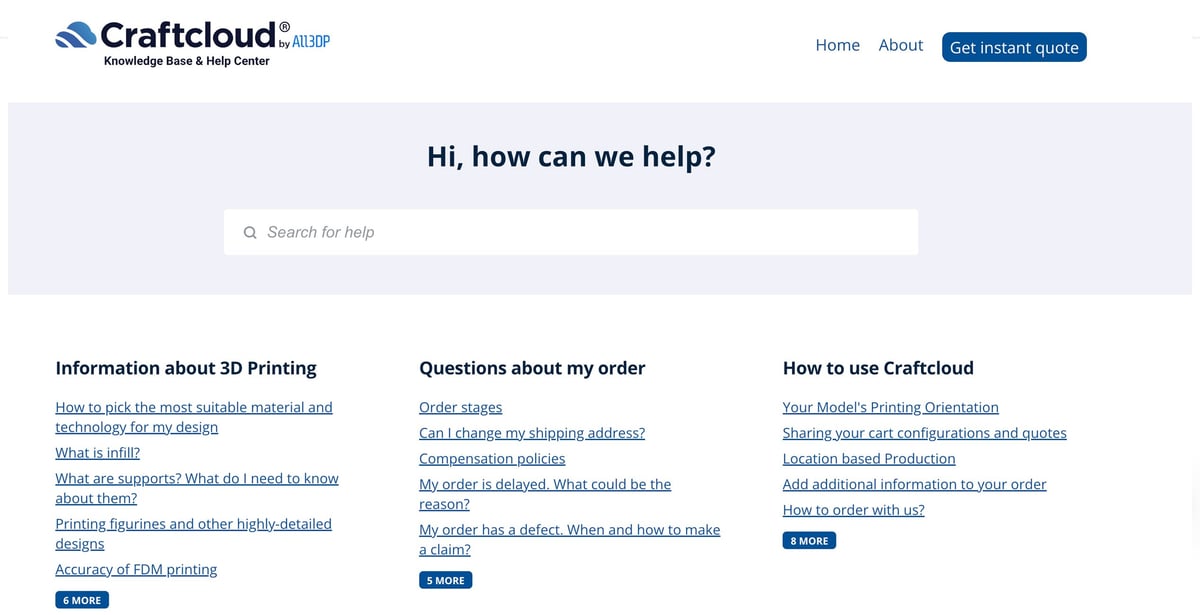
As we’ve found, Xometry, Protolabs, and Craftcloud are on par with each other in many respects. The right company for you will simply depend on your project and its requirements.
- For Materials Options: Craftcloud has the widest variety to choose from giving you the best chance to find the best fit.
- For Prototyping and Speed: Protolabs might be the better choice due to its extremely fast lead times and the option to order express services for an extra fee. Yet, you’ll find express services at Xometry and Craftcloud, too.
- For the Best Price: Craftcloud consistently had the lowest price for our test models.
- For Large Orders and Cost Efficiency: Xometry’s large manufacturing network could provide better pricing and scalability depending on the project, but Protolabs Network also offers excellent pricing on volume ordes if you’re willing to sacrifice lead times.
- For Specialized Materials: All three companies have extensive options, but the availability of niche materials may vary, requiring a case-by-case evaluation. Craftcloud offers the most transparency when it comes to specific materials and brands of materials.
You May Also Like:
License: The text of "Xometry vs Protolabs vs Craftcloud Put To The Test" by All3DP Pro is licensed under a Creative Commons Attribution 4.0 International License.




